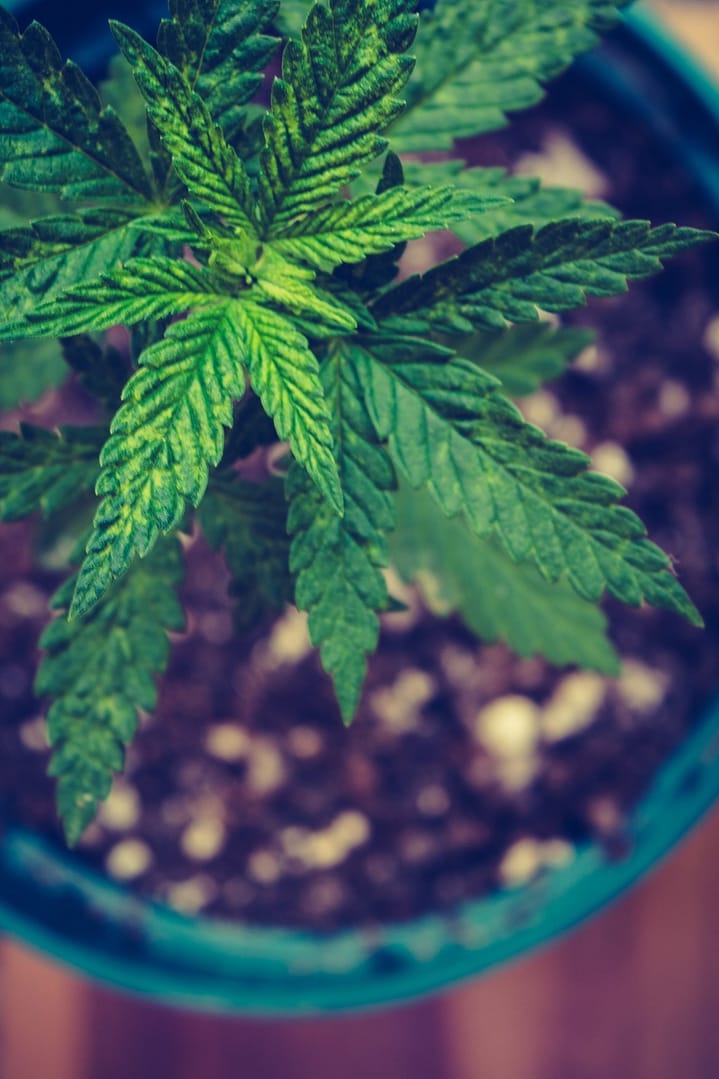Have Your Heard of Einkorn?
Einkorn. Now that is an interesting word; but what is it? It is an ancient variety of wheat primarily grown in Europe and is quite different than the modern wheat we in America are eating. However, it is beginning to gain some interest, and I will tell you why. Archeological findings have shown that people in the Fertile Crescent gathered wild einkorn wheat thousands of years ago. They realized that they could plant einkorn seeds and they began to grow this ancient wheat. The genetics of einkorn wheat has not changed since that time. However, other types of wheat have been created by hybridization. Like einkorn, most plants are diploid, which means they have two sets of 7 chromosomes. When other types of wheat were created, through ancient hybridization and more recent—genetic modification, additional sets of chromosomes were added. Following Einkorn, Emmer wheat was created 2000 years ago by the natural hybridization of two wild grasses with a result of 28 total chromosomes. Other wheat, Kamut and Duram wheat, are descendants of Emmer. Spelt was the result of the first wheat hybridization between cultivated Emmer and a wild grass, creating a species with 42 chromosomes. Now, back before 1960, we used to consume ancient wheat varieties such as Emmer, Einkorn and Kamut. However, almost all the wheat eaten today is high-yield dwarf wheat, which was developed by cross-breeding and genetic manipulation that started around 1960. Dwarf wheat has shorter stems and a quicker and greater yield than the ancient varieties. Thus, the modern dwarf wheat is more cost effective, has a higher yield, and can be grown more cheaply than the older varieties. For the wheat industry, the high-yield crop is obviously more profitable. But at what cost?
Modern wheat is less nutritious. The Broadbalk Wheat Experiment was a long running study to determine the health impact of wheat in our diet and the differences in the varieties of wheat. The study began in 1843 in which scientists had grown different strains of wheat and analyzed various factors which included nutrient composition. What they discovered was that the nutrient content did not change much from 1843 to 1960. However, from the year 1960 when modern wheat was created, the nutrient content started to decline. For example, Zinc, Copper, Iron and Magnesium were found to be 19-28% lower in the years 1968-2005, compared to 1845-1967. Another 2008 study compared the different varieties of wheat and found that the older wheat varieties contained significantly higher levels of Selenium than the post 1960 wheat varieties.
Another significant problem of modern wheat is the higher levels of one of the Gluten proteins called Glia-alpha9. This particular Gluten protein, among other Gluten proteins, appears to cause greater inflammation in the gut which can lead to an increase in immune related Gluten sensitivities and Celiac disease. A 2010 study found that the amount of this Glia-alpha9 gluten protein is much higher in modern wheat versus ancient wheat varities. Celiac disease is a serious condition and has been on the rise for decades, increasing about fourfold in the past 45 years. In contrast, Non-celiac gluten sensitivity is more common and afflicts even greater numbers of the population than Celiac disease. As a result, some researchers have suggested that modern wheat, due to its higher concentrations of problematic Glutens, may be worse for Celiac patients than the more ancient varieties of wheat. Studies are pointing in that direction.
One such study compared the effects of Einkorn wheat and modern wheat on intestinal cells in Celiac patients. Compared to modern wheat, Einkorn did not show any harmful effects in patients with Celiac disease. In another study of 12 patients with Celiac disease, gluten from Einkorn caused significantly less adverse reactions than Gluten in modern wheat and was better tolerated then rice- a Gluten free grain.
Another significant factor in the increased adverse reaction from modern wheat compared to ancient varieties is the way in which wheat is prepared. The ancient preparation techniques employed in Einkorn and other ancient varieties have been, for the most part, lost in the new post-1960 modern wheat. One such study highlights the difference in Gluten intolerance due to different preparation techniques. Sourdough bread (long fermented wheat) did not cause the level of reaction in patients with Celiac disease compared to regular bread.
These studies are encouraging, but more research needs to be done before patients with Celiac disease are recommended to start buying and eating Einkorn wheat or sourdough bread. However, these studies do make a good argument that modern wheat has the specific ability to set off an auto-immune reaction in the gut and very likely is a major factor in why Celiac disease and Gluten sensitivity are on the rise.
There is still another significant factor to consider. What is the current industry doing with non-organic grains, which are literally being grown in a “chemical soup”. What does that mean? Basically, toxic chemicals are being used in the soil, on the seeds, and on the plants. A new technique designed to increase seed release and yield at harvest from the addition of Herbicides, such as Glyphosphate and Paraquat, is called Desiccation. This new technique is being used in non-organic wheat crops to desiccate these crops with Glyphosate and Paraquat just before harvest to improve harvest. This became common practice about 15 years ago. Dr. Stephanie Seneff suspects this practice may be another reason we have seen such a dramatic increase in Celiac disease. Celiac disease, as mentioned earlier, is a severe reaction to Gluten that mainly affects your gastrointestinal system. Glyphosate, found in roundup, has been shown to severely damage your gut flora and cause chronic diseases rooted in gut Inflammation leading to localized and systemic metabolic dysfunction. The Glyphosate destroys the villi in your gut which you need to absorb vitamins and minerals. It also interferes with the proper digestion of the wheat and causes it to become highly indigestible. Glyphosate should be avoided because of its many health hazards in the human body and in the environment. As of yet, we are told that wheat has not been genetically engineered, but extensive hybridization has led to an increase in chromosomes from 14 to 42–that is a change in genetics. It may not be described as genetically engineering, but it is a change in the genetics none-the-less. Currently, it would be wise to consider avoiding non-organic wheat, even if derived from modern wheat.
A better choice would be to consider Einkorn wheat. What makes it different?
- Einkorn has not changed genetically since its discovery thousands of years ago.
- Studies have shown that the DNA of Einkorn‘s Gluten structure is different because Einkorn does not contain certain high molecular weight glutenins that are present in other types of wheat.
- The Gluten in Einkorn is very weak and is present at significantly lower concentrations—this allows baking with Einkorn without the added problems of digestion and inflammation present in modern day high Gluten wheat.
- Making Einkorn in the sourdough form may also aid in digestion.
Another question you may be asking is where can I find this wheat? One brand I like is Jovialfoods. Their website discusses the origin and makeup of Einkorn wheat and offers many recipes. You can buy directly from them or through other vendors. The regular flour already ground, has less fiber and is more like white flour, though is a decent choice. You can purchase the wheat berries and grind them yourself to produce a whole wheat variety. Einkorn is higher in antioxidants and would not stay as fresh if it was purchased ground in the whole wheat form. Any high powered blender can be used grind the wheat. If you are not interested in grinding your own Einkorn, a commercial Einkorn flour ready for baking is available from youngliving.
I do want to caution Celiac and Non-Celiac Gluten Sensitive patients from assuming it will be tolerated. I would recommend discussing this with your health practitioner before trying it. Here is a recipe, though I modified it, to try from the Jovial website. Enjoy!!
INGREDIENTS
- 2 ¾ cups Einkorn flour
- 3 tbsp. ground flaxseed or chia seeds
- ¼ cup raw honey or stevia equivalent
- 2 tsp. baking soda
- 1 tsp. sea salt
- 2 tsp. ground cinnamon, organic Ceylon variety
- ½ tsp. ground ginger (optional)
- 3 large eggs, organic
- 1/3 cup (120g) coconut oil, melted and slightly cooled
- 1/3 cup organic apple juice
- ½ cup organic freshly squeezed orange juice
- 2 tsp. pure vanilla extract
- 2 large carrots, peeled and grated (about 1 cup)
- 1 large, firm organic apple, peeled, cored, and grated (1 ¼ cup)
- ½ cup unsweetened shredded organic coconut
- ½ cup chopped walnuts
- ½ cup organic raisins
DIRECTIONS
- Preheat the oven to 375°F. Lightly grease 16-standard size muffin cups or fill with liners.
- In a medium bowl, whisk together the einkorn flour, ground flaxseed or chia, baking soda, salt, cinnamon and ginger (optional).
- In a separate mixing bowl, whisk together the eggs, coconut oil, honey, apple juice, orange juice and vanilla extract. Add the carrots, apple, coconut, walnuts and raisins and stir until combined.
- Fold the liquid ingredients into the dry ingredients and stir well.
- Divide the batter evenly among the 16 muffin cups.
- Bake the muffins for about 14-18 minutes, or until the tops are golden brown.
- Cool for ten minutes inside the muffin tin. Enjoy warm or room temperature. Cover and store at room temperature for up to 3 days.
ADDITIONAL TIPS
If you want to make it Gluten free, one suggestion is to substitute a 50/50 mix of almond flour and Gluten free oatmeal flour with the same amount of flour as Einkorn.
If you need it to be egg free, you can use an egg replacer or use additional chia seeds with water.
( 1 egg = 1 tablespoon of ground chia seeds to 3 tablespoons of water; whisk together and let it sit for 5-10 minutes before adding to recipe)
Would you like more information? Get in touch with us today!








